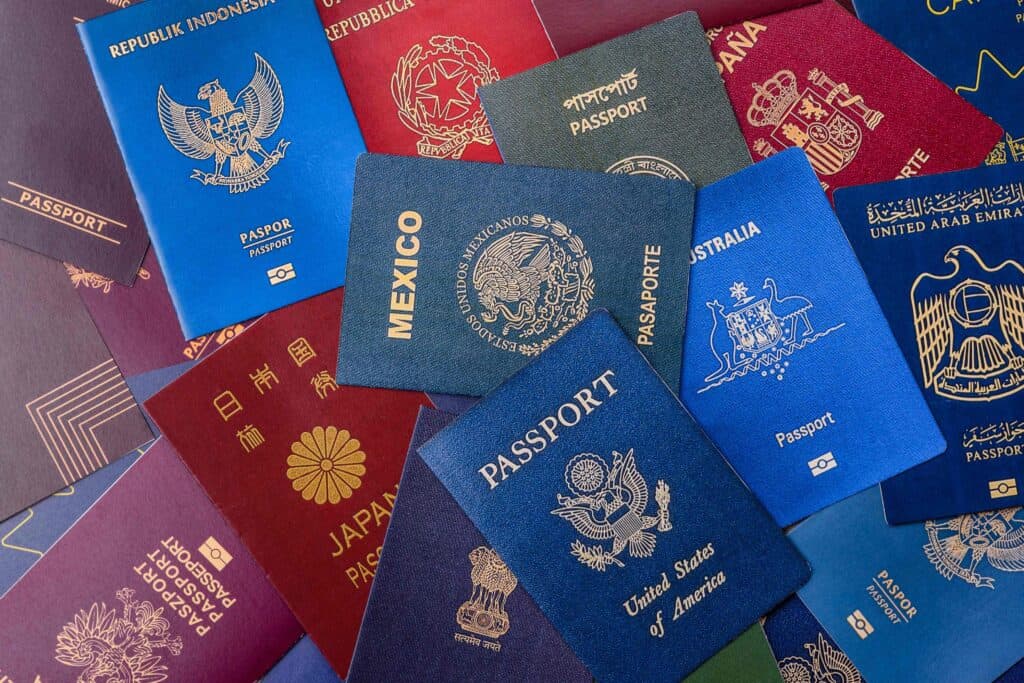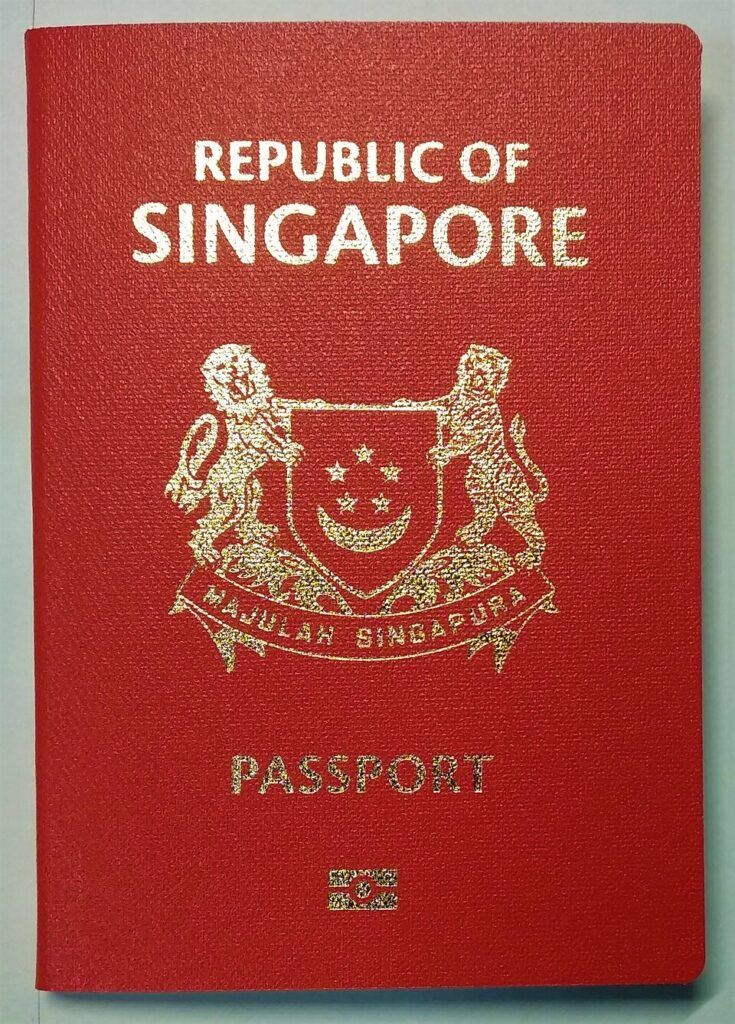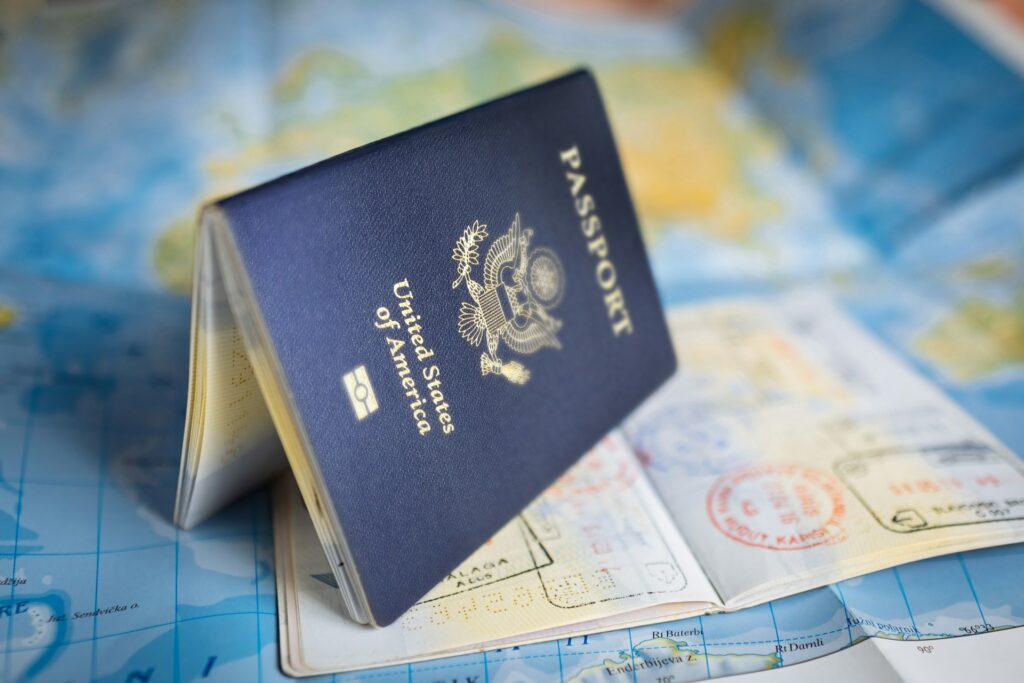We may earn money or products from the companies mentioned in this post. This means if you click on the link and purchase the item, I will receive a small commission at no extra cost to you ... you're just helping re-supply our family's travel fund.

Passport rankings tell a quiet story about global influence. Once the gold standard of mobility, the American passport now sits outside the world’s top ten for the first time in twenty years. In 2014, it held the number-one position. Today, it ranks twelfth—tied with Malaysia—offering visa-free access to 180 destinations.
This shift isn’t about paperwork alone. It reflects the changing geography of trust and diplomacy. Nations that invest in mutual agreements and adopt open travel policies are moving up, while countries leaning on historic privilege are sliding down. Power, in 2025, travels with cooperation, not just wealth.
How Passport Power Is Measured
Indexes like Henley’s Global Passport Ranking measure “travel freedom” by counting how many destinations a passport holder can enter visa-free or with visa-on-arrival. The higher the number, the stronger the passport. But that number also depends on international relations, reciprocity, and security perceptions.
This year’s data confirms a broader trend: small, globally engaged nations are outperforming large powers. Digital visa systems, bilateral trust, and clean diplomatic records are the modern markers of mobility. The strength of a passport now mirrors a country’s willingness to engage, not its military or economic size.
The Top 10 Most Powerful Passports in 2025

- Singapore – 193 destinations
- South Korea – 190 destinations
- Japan – 189 destinations
- Germany, Italy, Luxembourg, Spain, Switzerland – 188 destinations
- Austria, Belgium, Denmark, Finland, France, Ireland, Netherlands – 187 destinations
- Greece, Hungary, New Zealand, Norway, Portugal, Sweden – 186 destinations
- Australia, Czechia, Malta, Poland – 185 destinations
- Croatia, Estonia, Slovakia, Slovenia, UAE, United Kingdom – 184 destinations
- Canada – 183 destinations
- Latvia, Liechtenstein – 182 destinations
The rankings are dominated by Asia and Western Europe, where open-border policies and consistent reciprocity have built dependable travel frameworks.
Why the U.S. Slipped from the Top

Several factors pushed the U.S. down the list. Brazil reinstated visa requirements for American travelers in early 2025 after years of visa-free access, citing a lack of reciprocity. China declined to include the U.S. in its new visa-free program, joining Papua New Guinea, Myanmar, Somalia, and Vietnam in tightening entry requirements. Each small adjustment trims away global access.
Experts say this is partly political. When American administrations enforce stricter immigration policies or pause bilateral agreements, partner nations tend to respond. Over time, the U.S. built a reputation for selective openness—generous to allies, rigid with others. That image has cost it points on indexes that reward consistency and fairness.
The Broader Decline of Soft Power
Passport rankings measure more than travel—they measure trust. The decline of the U.S. passport parallels a wider perception that America’s foreign policy has grown insular. Annie Pforzheimer of the Center for Strategic and International Studies notes that “the isolationist mindset is now reflected in the country’s mobility power.”
While Washington emphasizes security, other nations see unpredictability. Long visa wait times and opaque reciprocity policies make it harder to maintain equal exchanges. As rivals like Singapore and South Korea expand visa partnerships, the U.S. remains cautious, losing ground one policy at a time.
A Surge in Second Citizenship
With travel freedom shrinking, more Americans are hedging their bets. Henley & Partners reports a 67 percent rise in applications for second passports compared to last year. Caribbean investment programs and European residency options are drawing record demand from U.S. citizens who want greater flexibility.
Professor Peter Spiro of Temple University Law School calls this shift “the new American dream.” Dual nationality has become a symbol of independence—freedom from the limits of one country’s policies. It’s both a status symbol and a practical safeguard for global citizens.
The Meaning of Openness

What separates leaders from laggards now is openness. Countries with stable politics, consistent visa reciprocity, and robust border technology climb faster than those that rely on old alliances. Singapore and South Korea keep building regional partnerships that expand mobility year after year.
For the U.S., rebuilding passport power will require patience and diplomacy. It means signing new reciprocal visa waivers, improving digital entry systems, and showing partners that openness can be mutual. In a world where travel access equals soft power, America’s return to the top depends on trust, not dominance.